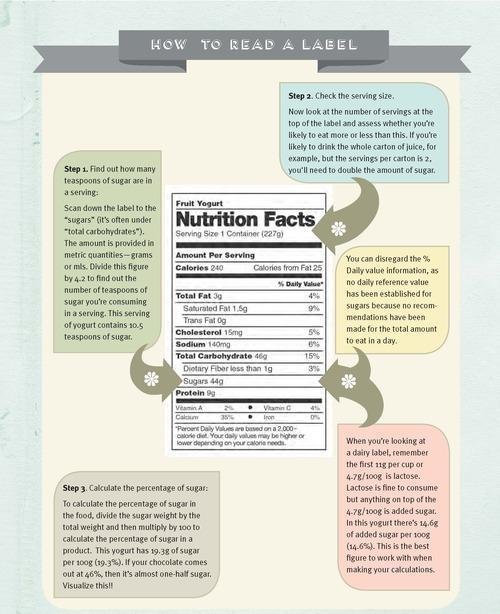In common diet culture, carbohydrates get a bad rap. They are seen as the enemy, something we should limit and often avoid at all costs. Trendy diets tell us that completely removing sugar is the only way to lose weight or reclaim our health.
But, that isn’t quite the truth.

Carbohydrates are essential to support our bodily daily functions – mostly, our levels of energy. The distinction is sourcing clean, digestive-friendly sugars from whole food sources versus relying on manufactured sweeteners as a source of energy.
On average, most Americans consume close to 125g of sugar per day (equivalent to 30 teaspoons), which is more than double the recommended daily intake per the World Health Organization. Food manufacturers sneak in unnecessary sugars into common daily staples, including almond and soy milk, deli meats, condiments and dressings, canned soups, tomato sauce, yogurt, protein powders and “health” bars.
While a sudden intake of carbohydrates induces its own digestive reaction, repeated consumption of excess sugar can affect health in many ways, including:
- Increased blood pressure and triglycerides
- Worsened allergies or asthma
- Reduced immunity due to gut microbiome disruption
- Changes in weight or body composition due to excess sugar storage
- Distorted eating patterns due to imbalance of hunger hormones
- Potential insulin resistance, leading to higher risk of diabetes
- Possible malnutrition due to vitamin or caloric deficiency
- Recurring inflammation, leading to long-term chronic illnesses
- Increased likelihood of dental decay
Thankfully, rebalancing our diet toward gut-friendly carbohydrates is not a difficult process. Here are three easy tips you can implement this week:
1. Limit added sugars at breakfast
This does not include fruit. Remember, sugar from fresh fruit is a digestible carbohydrate – the fiber, minerals and antioxidants make sense to our gut. We are talking about excess added sugars found in flavored yogurt, coffee creamer, processed bread products, protein drinks and more.
The foods we eat in the morning live in our mouths for 12 hours, even up to 24 (despite how efficient we brush). When our palette is routinely given whole savory meals, it learns to crave more nutrient-dense foods over the sugary packaged alternatives.
If you are unable to avoid sugars in the morning, aim to sweeten your meals (drinks, too) with all-natural sweeteners like organic unfiltered honey, raw maple syrup or 100% stevia powder.
2. Incorporate caramelized vegetables
Not only are vegetables loaded with fiber to help keep us fuller, longer – when cooked at high heat, many excrete sugar in the cooking process, transforming their flavor to a caramelized sweet, rather than a bitter green. Adding a plant-based sweet element into every meal will help curb sugar cravings later in the day, while providing rich sources of essential nutrients including Vitamin A, Vitamin C, folate and potassium.
Give these recipes a try:
Tarragon Glazed Carrots
Herb Roasted Parmesean Acorn Squash
3. Understand nutrition labels
74% of all packaged foods include added sugars. These added sweeteners hide under many different titles – in fact, there are over 61 different names currently accepted by the U.S. Food and Drug Administration (FDA). These include common names such as sucrose and high-fructose corn syrup, as well as less commonly known names like barley malt, maltose and rice syrup. (View full list of 61 names here.)

How do I read a nutrition label?
Unfortunately for us, even after a 2020 label update, the FDA does not require food manufacturers to separate natural sugars from added sugars, which can make nutritional value confusing. Read more on that here.
Step 1: Find out how many teaspoons of sugar are in a serving. Take “Added Sugars” and divide by 4.
Step 2: Check the serving size. If the packaged good (ie: a bottled iced coffee) is for 2, double the amount of total added sugar.
Step 3: Calculate the percentage of sugar. Divide the grams of total carbohydrates by the product’s total weight (total serving size in grams), then multiply by 100. This percentage makes up the total volume of sugar in that product. (Example: if a milk chocolate bar comes to 46%, nearly half the bar itself it added sugar).
Step 4: Use your best judgement for consumption. There are certain occurrences where sugary foods do in fact provide nourishment, from a soul-driven perspective. Be kind to your body and eat wisely.
So, what do I need to know?
According to the American Heart Association (AHA) women should limit added sugar intake to 25 grams per day, equivalent to 6 teaspoons. Note this is for added sugars only – fruits, vegetables, dairy and grains with natural carbohydrates do not count toward this total (although these should be balanced, as well).
- If sugar is listed within the top for ingredients, find another option
- If a product claims to be sugar-free, check the ingredients. It may be free of real sugar, but sweetened with chemical-based alternatives
- If a single product has more than 15g of sugar per serving size, consider if there is a healthier alternative
- Opt for fresh smoothies over fresh juices when possible. Both are high in natural carbohydrates, but smoothies contain more fiber, vitamins and nutrients
- Limit or omit any drinks with added sugar, opting for honey-sweetened teas, kombucha or sparkling water as an alternative
Despite all the data available, our view and personal needs for sugar is bio-individual. Some people believe that carbohydrates are essential to our body to perform it’s millions of daily functions, while others thrive with abundant energy on a diet of little to no sugar at all. The key is to stay mindful of what you consume, as awareness around sugar can be an important aspect of preventing inflammation and disease.
Note: This information pertains to those without any history of diagnosed or suspected eating disorders. Sudden sugar restriction can be triggering, and if this is your context, or if you have any question about whether your nutrition is taking you to an unhealthy place mentally, seek out the support of a trained counselor.
Sources + supporting research:
- “The Functions of Carbohydrates in the Body” https://med.libretexts.org/Courses/American_Public_University/APUS%3A_An_Introduction_to_Nutrition_(Byerley)/Text/03%3A_Carbohydrates/3.04%3A_The_Functions_of_Carbohydrates_in_the_Body
- “Potential role of sugar in the epidemic of disease” https://pubmed.ncbi.nlm.nih.gov/17921363/
- “Where people around the world eat the most sugar” https://www.washingtonpost.com/news/wonk/wp/2015/02/05/where-people-around-the-world-eat-the-most-sugar-and-fat/
- “Hidden in Plain Sight” https://sugarscience.ucsf.edu/hidden-in-plain-sight/#.YhVIMy-cbOQ